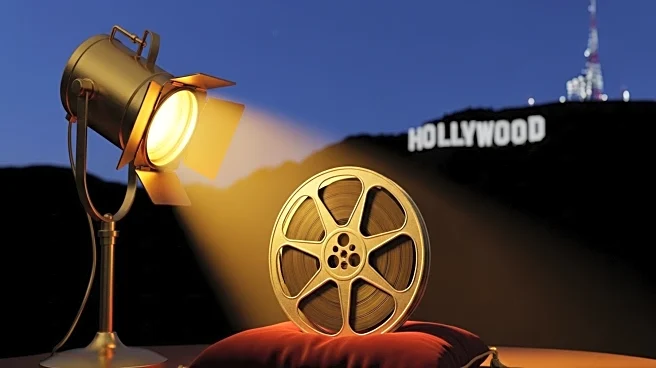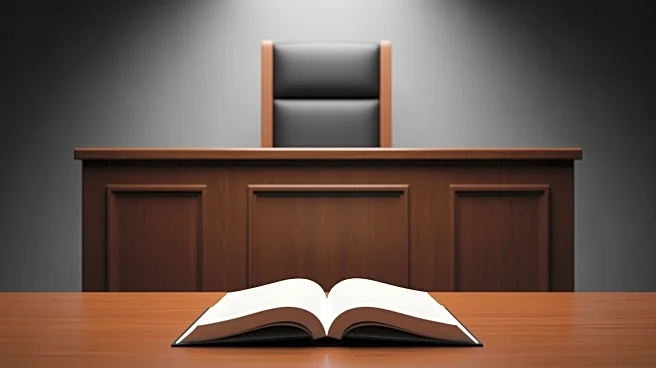What's Happening?
Angelina Jolie's statement at the San Sebastián Film Festival on September 21, 2025, has sparked significant controversy in the United States. During a press conference, Jolie expressed her feelings of disconnect with the current state of the country, saying, 'I love my country, but at this time, I don’t recognize my country.' This comment came shortly after ABC's decision to pull a popular late-night host, which has intensified discussions around free speech and media decisions. The remark quickly spread across major media outlets, including Variety, Rolling Stone, and CNN, linking Jolie's words to the broader debate about political expression in entertainment. The incident highlights the ongoing cultural tensions and the impact of political remarks on careers in the entertainment industry.
Why It's Important?
The significance of Jolie's remarks lies in their potential impact on the entertainment industry and the broader cultural landscape in the U.S. As a prominent figure, Jolie's comments carry weight and have prompted discussions about the balance between artistic expression and commercial interests. The incident underscores the pressures faced by studios and festivals in managing political remarks, which could lead to tighter media protocols and increased scrutiny of public statements by artists. This development may influence how creators approach political topics, potentially leading to self-censorship or advocacy for clearer protections for artistic speech. The debate also reflects the polarized media environment and the commercial pressures on networks and advertisers, highlighting the complex dynamics between cultural expression and business interests.
What's Next?
In response to the controversy, studios and festivals may implement stricter media protocols and prepare for potential backlash from political remarks. Publicists might advise artists to adopt more apolitical responses, while legal teams could assess sponsor exposure risks. The entertainment industry may face a shift towards more cautious public statements, impacting how creators engage with political topics. Additionally, the incident could spark organized advocacy for clearer protections for artistic speech, as stakeholders weigh the implications of political expression on distribution plans and reputational risks. The broader question remains whether this moment will lead to increased silence among creators or inspire efforts to safeguard artistic freedom.
Beyond the Headlines
The deeper implications of Jolie's remarks involve the ethical and cultural dimensions of free speech in the entertainment industry. As a former UN envoy and household name, Jolie's voice adds diplomatic and cultural weight to the debate, forcing corporates and networks to respond visibly. The incident raises questions about the limits of personal expression and freedoms in the U.S., potentially influencing public discourse on artistic speech. The cultural debate may also reflect broader societal divisions, as celebrities and pundits polarize over the right to critique civic direction. This moment could catalyze discussions on the role of artists in shaping public opinion and the responsibilities of media platforms in facilitating diverse viewpoints.








